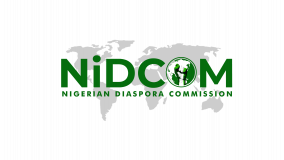Reforms by Multilateral Development Banks, like the International Monetary Fund (IMF) and World Bank, have failed to transform Africa’s socioeconomic status in the last three years, according to Africa Futures Policies Hub.
The report, titled “Assessing progress towards reforming the global financial architecture; Africa’s perspective”, stated that reforms implemented by these institutions need to be implemented in Africa’s economic context.
“The assessment shows little to no progress is being made on addressing the continent’s debt concerns, high cost of borrowing and actual disbursements against financial commitments −putting into question transparency and accountability frameworks in the development financing ecosystem,” it said.
IMF’s recent admission of the African Union into the G-20, and appointment of a third Sub-Saharan African representative, solidified Africa’s representation in the global financial landscape.
However, the recent quota reforms maintained the power imbalance among member states, with Africa still receiving a small share of the quota pie at 5.2 percent.
“The review resulted in the Board of Governors approving a 50 percent (US$320 billion or SDR 238.6 billion) proportional increase in all quotas, but there was no shift in the balance of power within the quota system.”
Read also: What the World Bank Chief Economist failed to say about reforms in Nigeria
“Given that IMF quotas are distributed to member states based on the size of their economies, low-income countries, particularly African countries receive a small share of the quota pie (AU member states together receive 5.2 percent of total IMF quotas),” the report stated.
“Reforming the global financial architecture means many things, but from an African perspective, progress remains critically insufficient until and unless we see significant new and additional international provision of grant-equivalent finance to developing countries, on the scale of the hundreds of billions required, respectively, to address mitigation, adaptation, and loss and damage needs,” Iskander Erzini Vernoit, director, Imal Initiative for Climate and Development said.
Maria Nkhonjera, senior policy lead (public finance), African Future Policies Hub, noted that one major challenge for Africa’s international climate financing is mostly debts.
“Only 4 percent of that package is granted, which raises the question about the debt depictions of climate finance,” she said.
Daouda Sembene, CEO, AfriCatalyst said that the trend was unsustainable and needed to be reversed.
“The reform of the global financial architecture must be calibrated to help Africa raise adequate and affordable flows of climate finance, notably in the form of grants and concessional loans”, Daouda Sembene, CEO of AfriCatalyst said.
Join BusinessDay whatsapp Channel, to stay up to date
Open In Whatsapp





